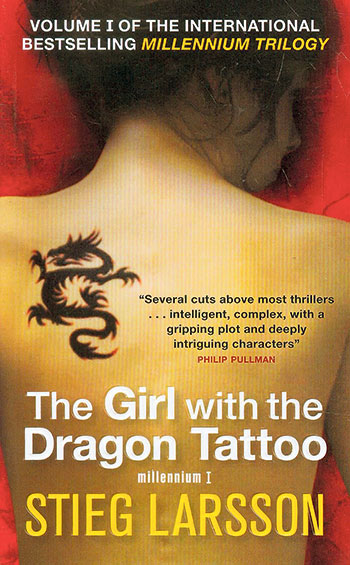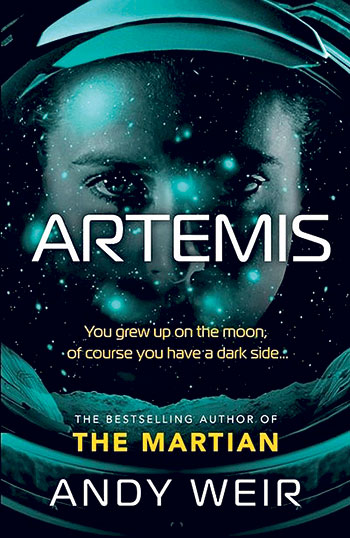Fictional women we could all learn a thing or two from
Throughout history women have fought and criticized oppression and discrimination via literature showing that they too can be as powerful and as creative as anyone else in the world. Here we bring to you a list of five books with iconic female leads that are worth a read (and perhaps a reread).

Salvage the Bones by Jesmyn Ward
This fiercely gripping novel takes place in the fictional town of Bois Sauvage, Mississippi, in the 10 days leading up to Hurricane Katrina. It is written by Jesmyn Ward and was the 2011 recipient of the National Book Award for Fiction. On one level, Salvage the Bones is a simple story about a poor black family that’s about to be affected by one of the most deadly hurricanes in U.S. history. What makes the novel so powerful, though, is the story’s female lead, a 14-year-old girl named Esch, the only daughter among four siblings, who is the voice of the narrator. Amidst all the chaos due to the hurricane, Esch realizes that she is pregnant, has to deal with an emotionally unavailable father as well as keep hope alive among her siblings. Precocious, passionate and sensitive, she is the voice of reason in the story as well as Ward’s reflections on life and her inner thoughts. Among the simple lives of these poor people living among chickens and abandoned cars, Ward evokes the tenacious love and desperation of classical tragedy.
One in four countries reported backlash on Women’s Rights in 20...


The Girl with the Dragon Tattoo (Millennium Series) by Stieg Larsson
The Girl with the Dragon Tattoo is a psychological thriller novel by Swedish author and journalist Stieg Larsson. The first of a five part series, The Girl with the Dragon Tattoo follows the story of Lisbeth Salander who is a brilliant but emotionally troubled young woman. She is a computer genius and possesses a photographic memory and legendary hacking skills. Salander also has her own fierce personal trademark style - she is rail-thin, with short black hair, with a tattoo of a wasp on her neck as well as a large tattoo of a dragon on her back that runs from her shoulder, down her spine, and ends on her buttocks. The story in the novel follows Salander accompanying Mikael Blomkvist in order to solve a 40-year-old missing person’s case. The story is based on real towns in Sweden and plays with ideas like power, family, and death.

Artemis by Andy Weir
Artemis is a 2017 science fiction novel written by Andy Weir. The novel takes place in the late 2080s and is set in Artemis, the first, and so far only, city on the moon. It follows the life of porter and smuggler Jasmine “Jazz” Bashara as she gets caught up in a conspiracy while trying to pull off a heist that will bring her out of poverty and the life of smuggling. Life in Artemis is difficult for Jazz considering how she is not a billionaire. Her life circles around putting herself at risk and smuggling goods. Jazz finally finds an opportunity to escape the rabbit’s hole when a wealthy businessman asks Jazz to carry out a criminal activity, offering her a large sum of money if she succeeds. Jazz initially accepts the offer but soon realizes that the consequences are intense and she could be a part of something bigger and more complex. Moreover, readers on Good Reads (approximately 35,000 people) chose the novel as the best science fiction novel for 2017. The Wall Street Journal wrote “Revitalizes the Lunar-colony scenario, with the author’s characteristic blend of engineering know-how and survival suspense...Jazz is a great heroine, tough with a soft core, crooked with inner honesty.”

Red Clocks by Leni Zumas
Red Clocks is a dystopian novel written by Leni Zumas and published in January 16, 2018. It follows an era in the USA where abortion is banned (sound familiar?) and there is a pink wall that stops women from going to the heavenly land of Canada in order to have control over their bodies. The setting of the novel is pretty subdued and feels relatable in the present context as it follows the lives of four women, all dealing with their lives which is affected by the ban: Susan, who is trapped in an unhappy marriage, trying not to resent the burden of her two toddlers; Ro is a high school teacher trying everything to conceive a child before her biological clock runs out; Mattie, one of Ro’s students, is a smart teenager with a promising future but whose unwanted pregnancy has thrown all that into doubt. And, finally, Gin is a hermit who knows how to use the forest herbs to heal sicknesses and end pregnancies.

Jane Eyre by Charlotte Brontë
Jane Eyre is classic gifted to us by novelist Charlotte Bronte, one of three Bronte sisters who are now considered icons in classic English literature. Published in 1847 under the pseudonym Currer Bell, Jane Eyre became an instant commercial and critical success and has aged as the best of what classic English lit has to offer. At first, Jane Eyre might seem like love story following Jane Eyre and her love for Mr Rochester, a mysterious master of Thornfield Hall. But upon closer look, Jane Eyre is a way-ahead-of-its-time, one of a kind, protofeminist story with a strong and independent female lead. The novel contains social criticisms and ideas considered unorthodox at the time. “I am no bird; and no net ensnares me: I am a free human being with an independent will” is a famous quote from the book and it perfectly sums up the indomitable spirit of the heroine that is Jane Eyre.







































